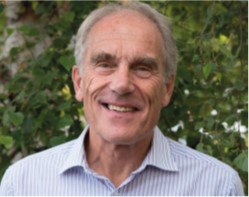 Brian Parrott reflects on the uncertain place of ‘community’ within the social work profession. (711 words)
Brian Parrott reflects on the uncertain place of ‘community’ within the social work profession. (711 words)
In the 1968 Seebohm Report-influenced years for social work, the word ‘community’ was widely used, whether ‘community development’, ‘community work’, ‘patch working’, ‘community social work’ or other.
The common essence was something about the interrelationship of an individual or family’s circumstances with the place in which they live – its features, its wellbeing and the social forces and policies which impact on them.
During the first half of the 1980s, what came to be called ‘community social work’ in local authority social services departments or in projects supported by them, was described, promoted, supported and criticised. It has lived on ‘below the surface’ as other events in children’s services, adult social care, political favour, or public funding have dictated the nature and focus of social work.
For many of us, this has meant that something was ‘lost’ that might merit revisiting, particularly now in the contexts of greater focus on user-led services, collaborative working and ‘co-production’. Continue reading